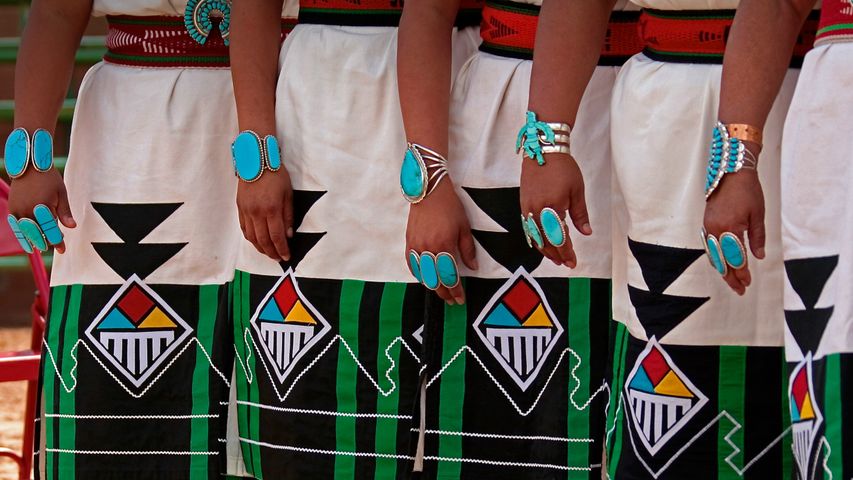An olive tree in front of the Temple of Concordia on the island of Sicily, Italy
© Alfio Finocchiaro/Shutterstoc
A symbol of peace. World Olive Tree Day
While not everyone would recognize this as an olive tree, most of us understand the meaning of the phrase 'extending an olive branch,' long known as a gesture of peace and friendship. That sentiment of compassion, harmony, and wisdom is at the heart of UNESCO's World Olive Tree Day, created in 2019 and observed every November 26. The intent of the day is to bring attention to the resolution of conflict worldwide and to the preservation of the olive tree itself, like this one standing in front of the Temple of Concordia in Agrigento, Italy. The well-preserved, Greek Doric temple was built on what is now the south shore of Sicily, around 440 BCE. Olive trees are native to the coastal regions of the Mediterranean and are cultivated today in places with similar climates, like parts of California and Israel. About 90% of harvested olives are used to make olive oil, the quintessential ingredient in Mediterranean cooking.
The cultivation of olives is about as old as human civilization itself, as are some of the trees themselves. Although olive trees do not grow very tall, usually no more than 30 feet, they live a very long time. One of the oldest known trees in the world, in Portugal, is believed to be 3,350 years old. Many live for millennia, their trunks growing thick and gnarled, and their branches bearing fruit century after century. As civilizations rise and fall around them, these hardy trees remain resilient and steadfast.
Related Images
Bing Today Images
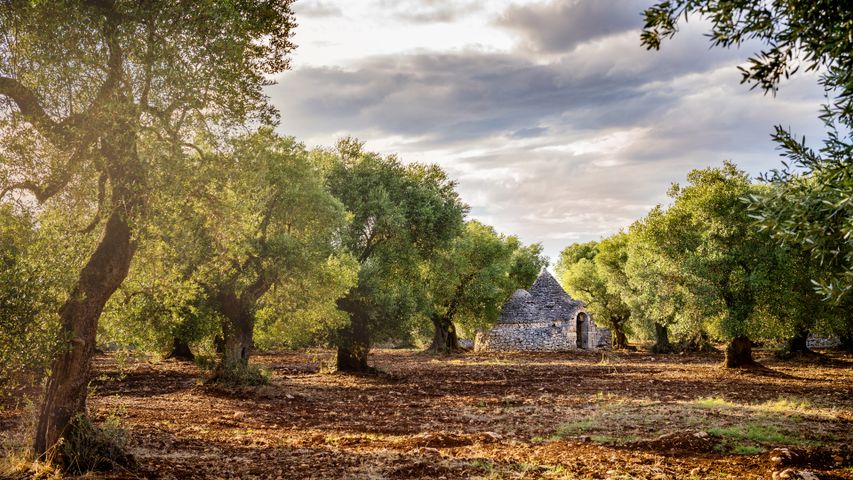
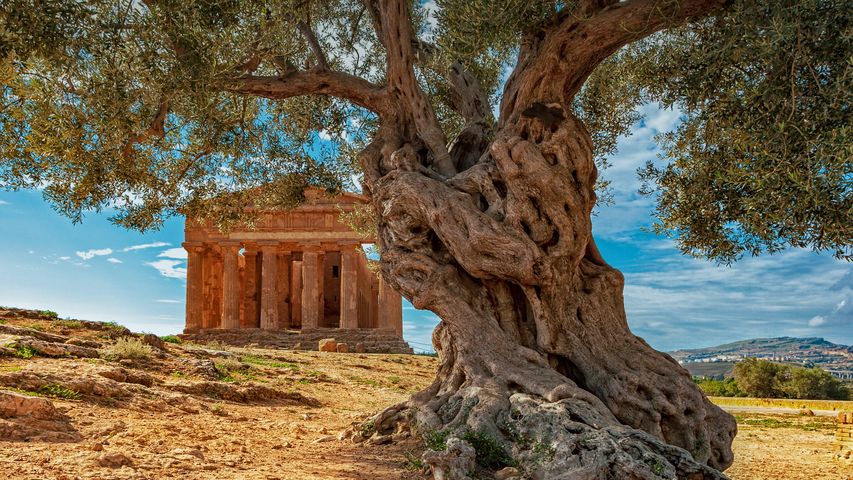
 Little Pigeon River, Great Smoky Mountains National Park, Tennessee
Little Pigeon River, Great Smoky Mountains National Park, Tennessee
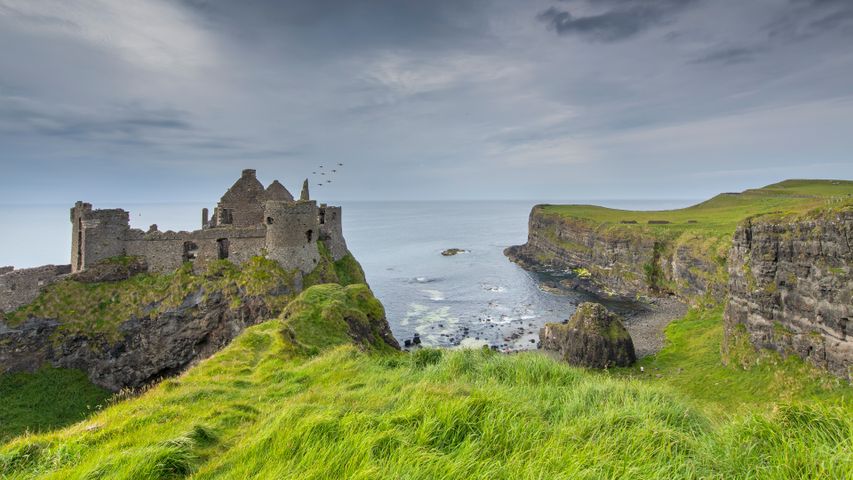 Dunluce Castle, County Antrim, Northern Ireland
Dunluce Castle, County Antrim, Northern Ireland
 Spire Cove in Kenai Fjords National Park, Seward, Alaska
Spire Cove in Kenai Fjords National Park, Seward, Alaska
 Zion National Park, Utah
Zion National Park, Utah
 Kachina Bridge, Natural Bridges National Monument, Utah
Kachina Bridge, Natural Bridges National Monument, Utah
 Gaztelugatxe at sunset, Basque Country, Spain
Gaztelugatxe at sunset, Basque Country, Spain
 Red rock formations, Sedona, Arizona
Red rock formations, Sedona, Arizona
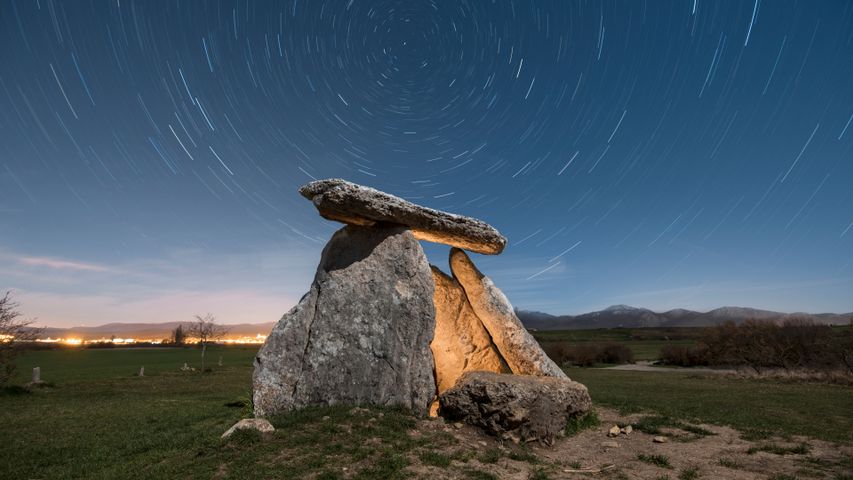 Dolmen of Sorginetxe, Basque Country, Álava, Spain
Dolmen of Sorginetxe, Basque Country, Álava, Spain

